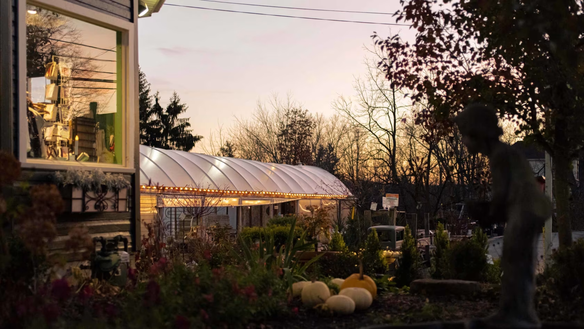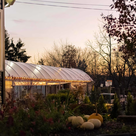Transcript
Mei Lum: My family has never been very open or very aggressive about making money or, you know, they're not in it for money first. The first year, I really spent time understanding what my grandmother did, how she built the business, a lot of the systems and processes that she used and didn't use. So it's been really nice to have that knowledge transfer and continuity.
But I also have just learned over time what feels good for our business.
Mei Lum: My grandmother, my grandparents have been stewarding this space for as long as I've been alive. It's been a space where I've come to after school to have family dinners, to have Chinese lessons, and has been a space where it's really grounded me in who I am, and my relationship to the neighborhood and my Chinese-American identity. We try to cultivate a community space within the shop.
Mei Lum: In 2016, we started the W.O.W. Project, which is a community initiative that uses arts and activism as a means to resist the gentrification and cultural displacement that's happening here in Manhattan’s Chinatown. When you're a social mission-driven business, I think the ways in which you make financial decisions are different. The ways in which that played out, especially during COVID, is thinking through how can we show up? How can we use our space for supporting the movements that are happening?
Gary Lum: The sh*t that's hitting the fan right now with Black Lives Matter, LGBTQ+ community are difficult social issues. And I have been able to open my baby boomer mind to see where my discomfort is around those social issues.
Mei Lum: When I proposed we're going to be donating 10 to 15% of our profit this month to “X” organization, I think they were like, not necessarily right off the bat, understanding how showing solidarity and building community in this way is work that will set us up for more of a collective mindset in the future.
Gary Lum: In openly speaking about my discomfort, I found similarity and commonality with others.
Mei Lum: I didn't call myself a small business owner for three years. I only called myself a fifth-generation owner-in-training, 'cause I had such a hangup about even owning the title and not having the knowledge fully. And it's not like I have it now, but I have experience to give me confidence in making decisions, in taking risks. It's been making sure we have enough liquidity to grow at our own pace and not feel rushed to make all the revenue we want. We're a community first, and we're thinking through how to support Chinatown, and that's what our priority is.







